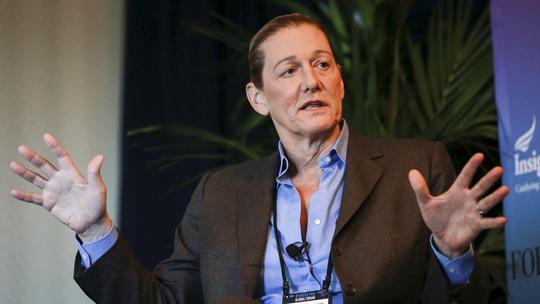
United Therapeutics Inc. (NASDAQ: UTHR) heads toward 2021 with revenue growth for key drugs, a new market for expansion and a plan to launch three new products — as generic competition stands to rise and the coronavirus pandemic continues.
The Silver Spring biotech said it closed the third quarter with the most patients it’s ever had using some of its pulmonary arterial hypertension medicines, and double-digit growth year-over-year in the number of patients using Orenitram and Tyvaso. It raked in $1.098 billion in revenue for first nine months of 2020, a 3% decrease from its $1.137 billion in revenue for the same period of 2019. It also had $570.1 million in operating expenses for the first three quarters of the year, a notable decrease from its $1.4 billion in 2019. As of September, UT counted $2.8 billion in total cash and cash equivalents and marketable investments.
Its revenue came partially from three products with increases in net sales for the first three quarters of this year: Tyvaso, which took in $351.6 million, up 8% over 2019; Orenitram’s $219.1 million, a 26% spike over 2019; and Unituxin’s $93.2 million, up 16% compared with 2019. But that was offset somewhat by two products feeling the effects of generic competition, including Adcirca — which generated $45.7 million for the first nine month of 2020, a 42% drop from last year. And the company’s biggest revenue-generator, flagship PAH drug Remodulin, brought in $388.8 million for the first three quarters of 2020 — though, it too saw a 19% decline from its $479.6 million for the same period in 2019.
It reaffirms UT’s investment in new Remodulin products, both slated to launch in 2021 — and both after delays:
- RemUnity: The subcutaneous pump with disposable cartridges for Remodulin will go live later than planned because of pandemic-induced commercial sales delays, the company said. But the ball is now rolling and “we believe we have overcome the Covid-related delays that impacted the July launch timing,” United Therapeutics President Michael Benkowitz said on the Oct. 28 third-quarter earnings call. UT’s partner, DEKA Research and Development Corp., is now building its commercial inventory to clear a path for its commercial launch.
- Implantable system for Remodulin: UT developed this product with Medtronic Inc. (NYSE: MDT), which is now working with regulators to satisfy remaining conditions required for it to advance. It was originally intended to go live in 2020. “We believe we remain on track for a launch next year and we are already working with key PAH centers to get them ready for this launch,” Benkowitz said on the call.
As of the end of the third quarter, United Therapeutics said it has seen “minimal erosion” of Remodulin sales due to generic competition. But it continues with litigation, and in Europe its “international Remodulin revenues have come under increasing pressure” because of such competition, it said in recent Securities and Exchange Commission filings. The company counted $105.9 million in net product sales for Remodulin outside of the U.S. for the first nine months of 2020. UT is also contending with a lawsuit it filed against Morrisville, North Carolina-based Liquidia Technologies Inc. for patent infringement, still ongoing.
United Therapeutics heads into 2021 planning to again file a new drug application with the FDA for disposable pump system Trevyent, which it acquired along with SteadyMed Therapeutics Inc. in 2018. UT had submitted its application last year and in April learned the agency wanted the company to address deficiencies in its submission. It’s also vying to expand its indication for its inhaled form of Tyvaso to include pulmonary hypertension associated with interstitial lung disease. The biotech submitted its application to the FDA in August and said it expects a regulatory review by April 2021. That program follows a positive February trial and paves the way for UT to expand beyond its core PAH franchise to also include pulmonary fibrosis, a type of interstitial lung disease, and others.
“I think this quarter and perhaps more generally this half of the year, will be looked at in retrospect as a key pivot point for United Therapeutics,” said founder and CEO Martine Rothblatt on the company earnings call. “You always hope that you can be strong at your home base and then expand from that. And with this adjacency of interstitial lung disease and pulmonary hypertension, we have a very logical and solid basis from which to expand our footprint in providing more and better healthcare to ever larger numbers of people.”
Beyond these programs, UT has resumed enrollment for some of the clinical trials it had paused in the first quarter amid coronavirus. It’s also planning to file investigational new drug applications for a painless form of subcutaneous Remodulin called RemoPro in the fourth quarter of 2021, and for its xenokidney program — which involves a modified pig kidney — also next year.
UT’s stock was trading up slightly to $138.90 per share Wednesday afternoon.


